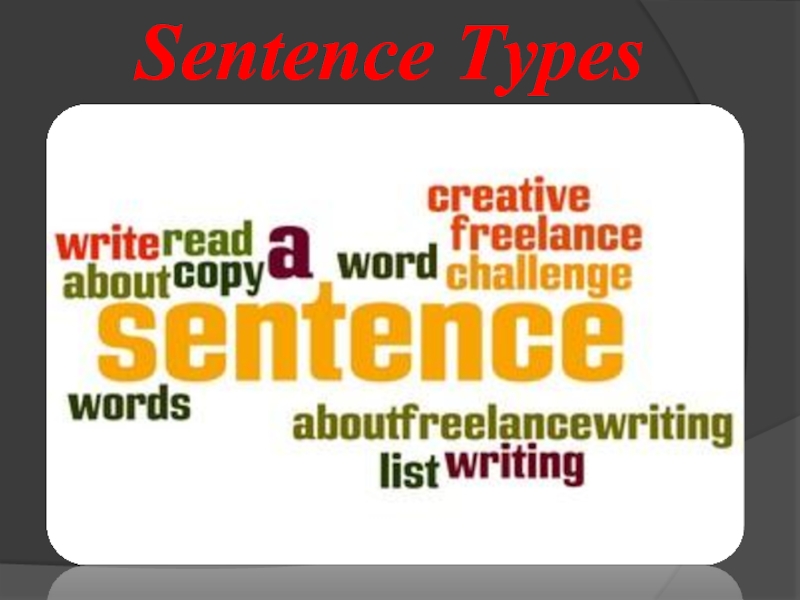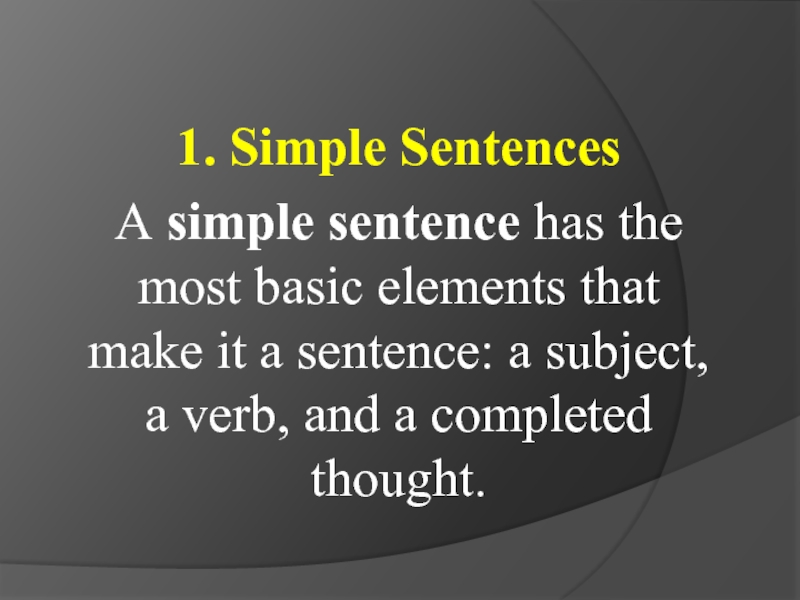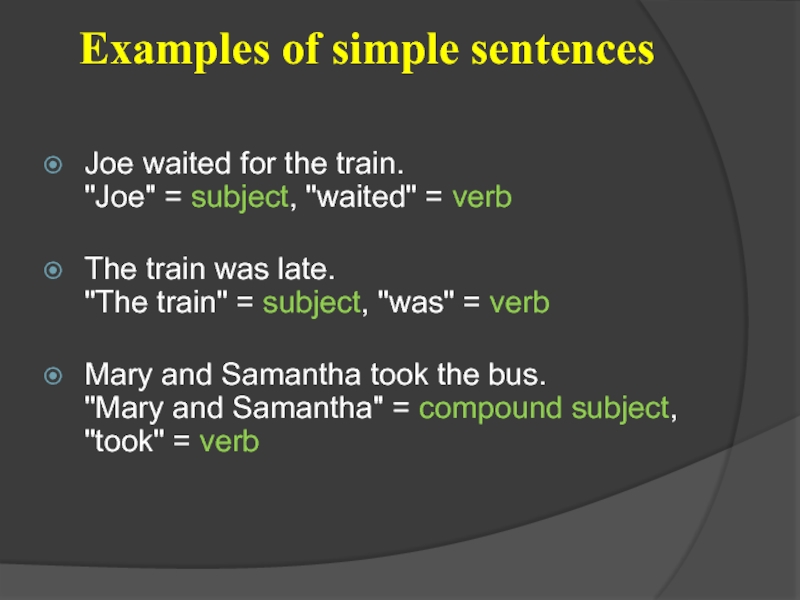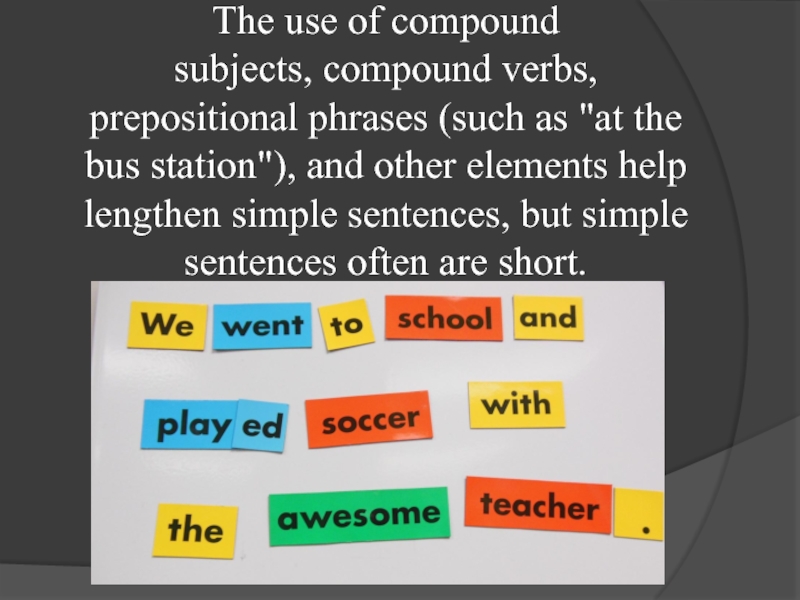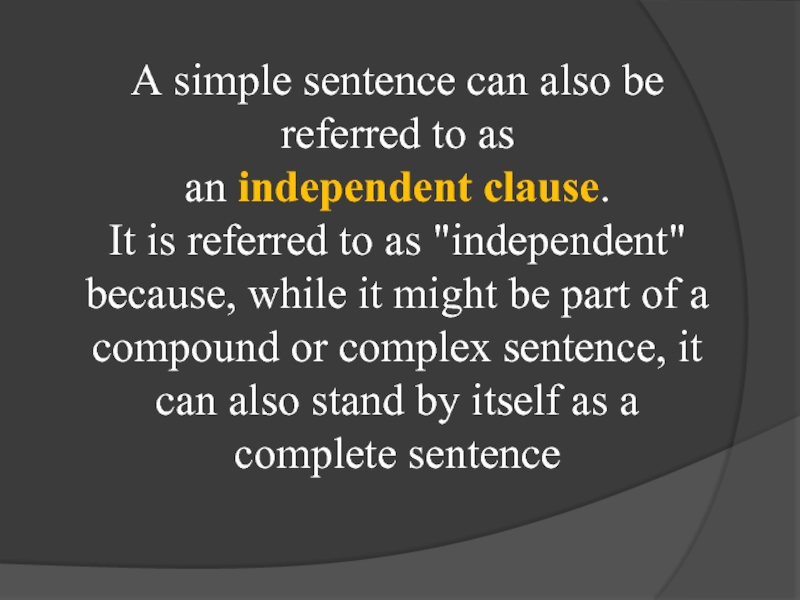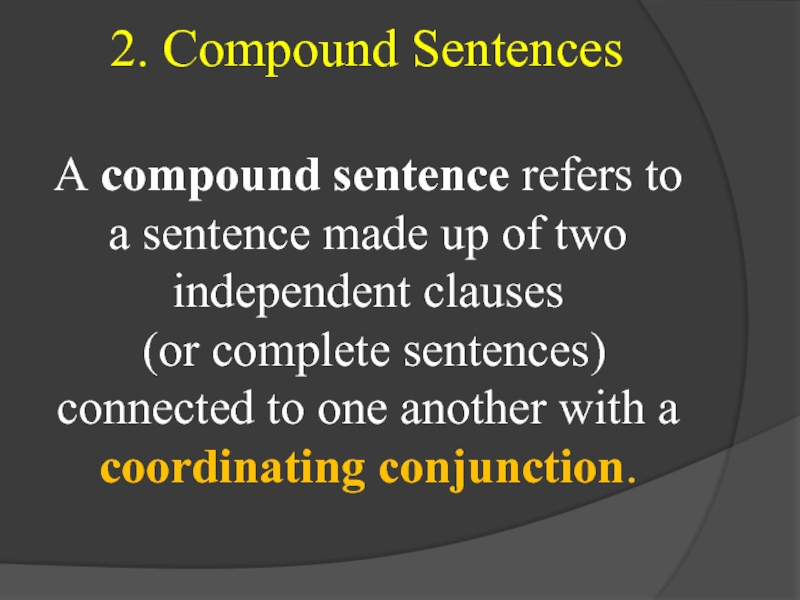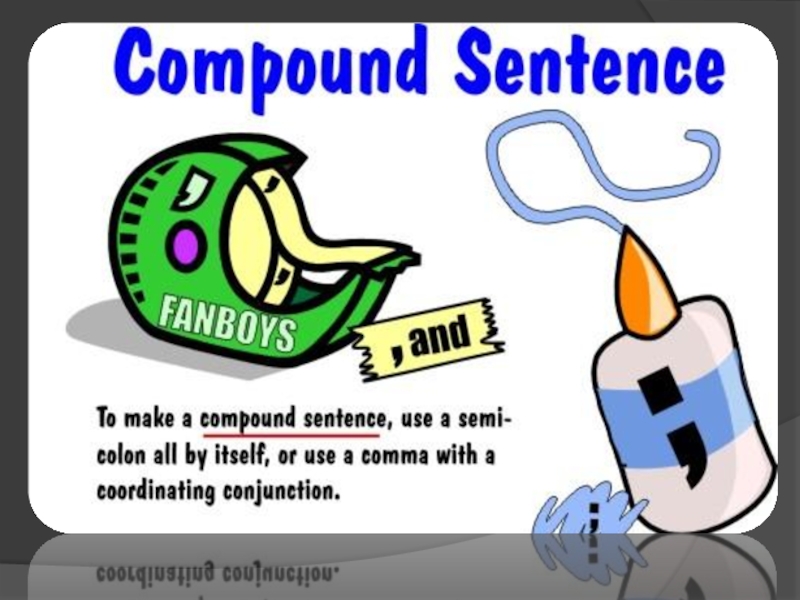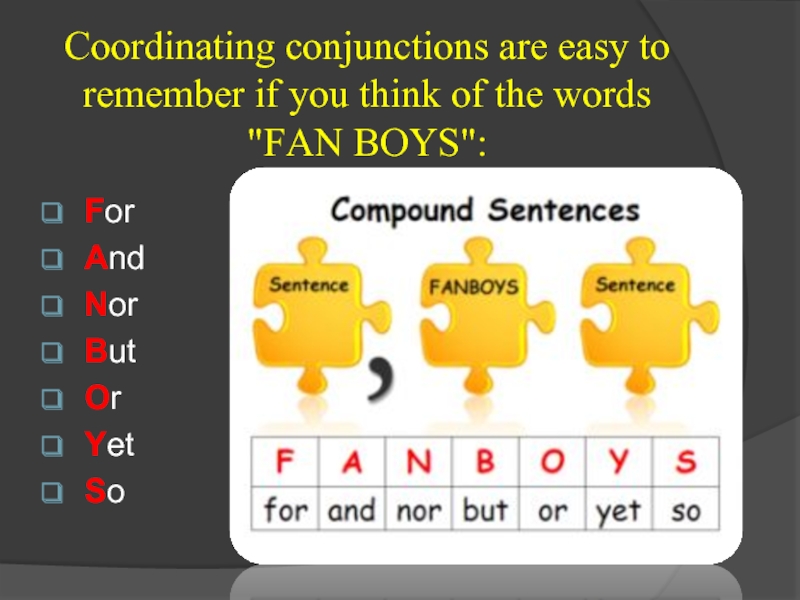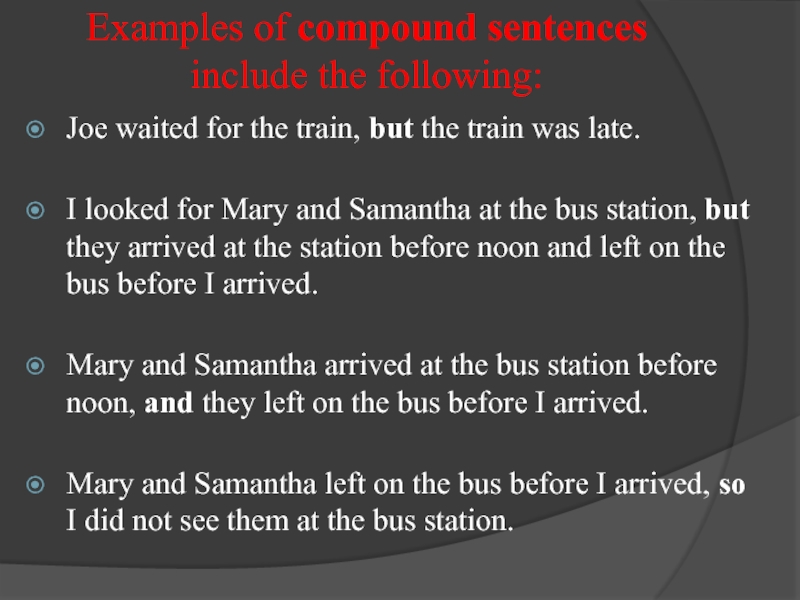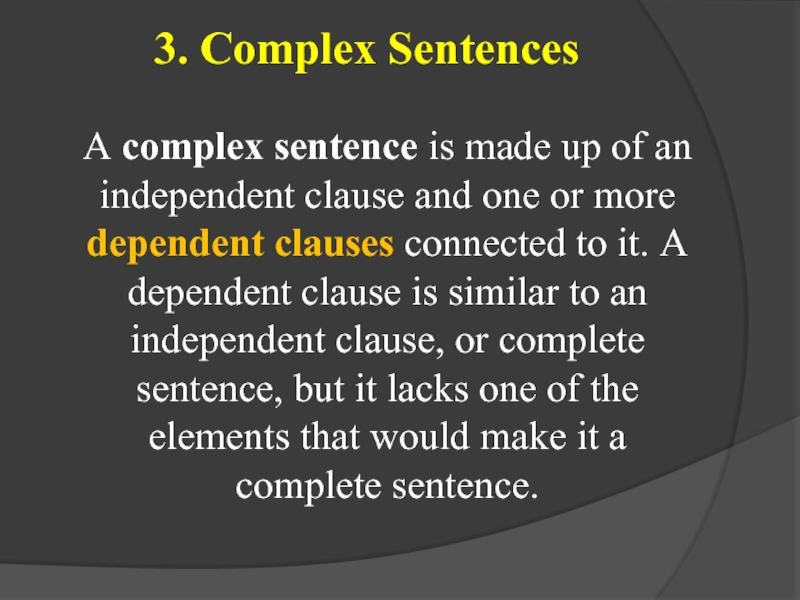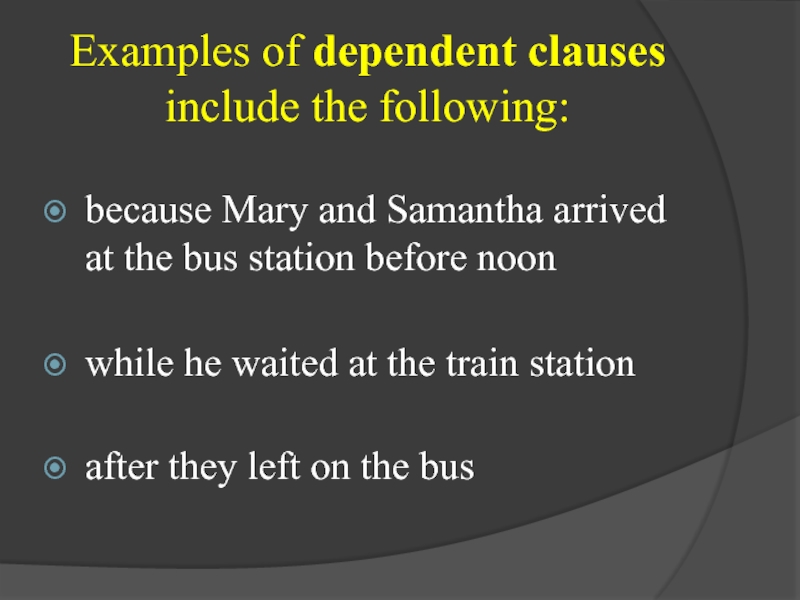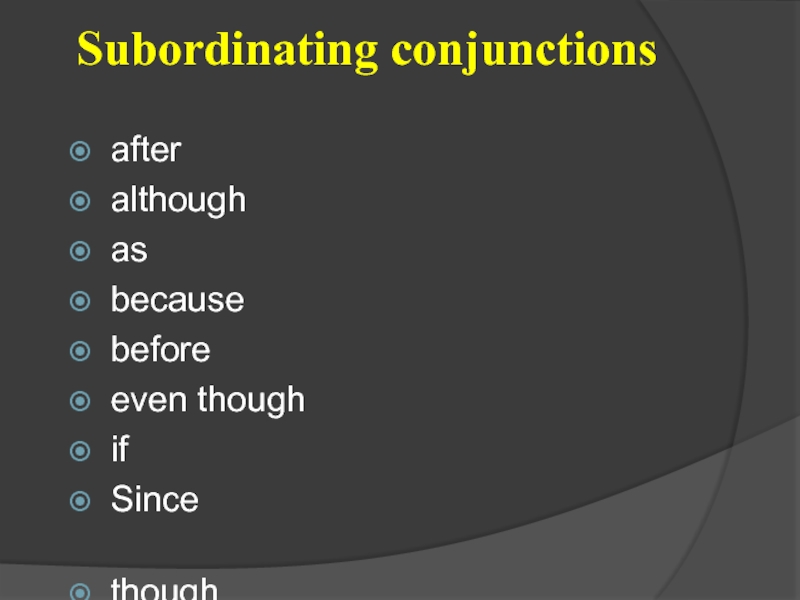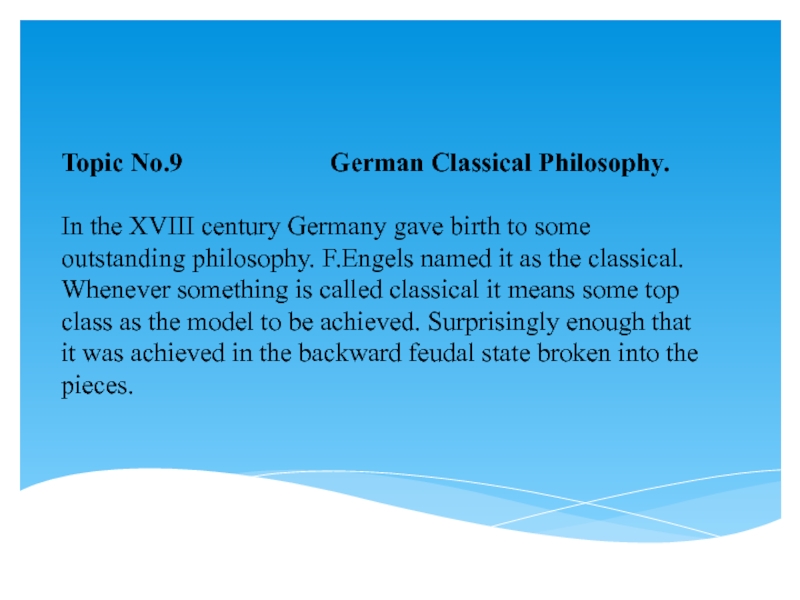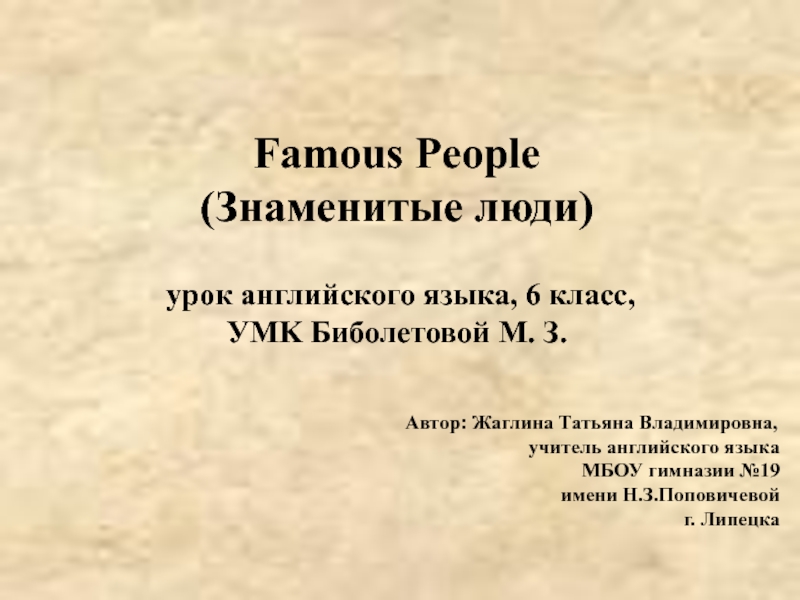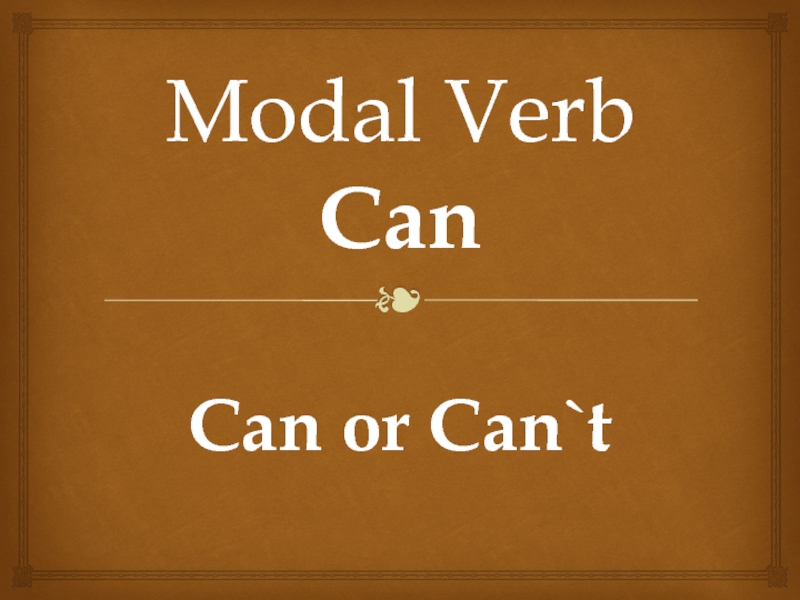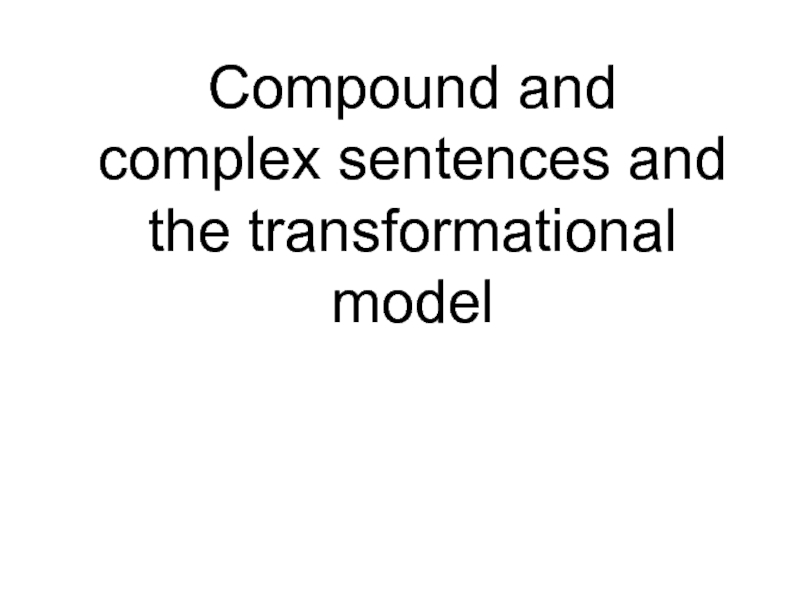- Главная
- Разное
- Дизайн
- Бизнес и предпринимательство
- Аналитика
- Образование
- Развлечения
- Красота и здоровье
- Финансы
- Государство
- Путешествия
- Спорт
- Недвижимость
- Армия
- Графика
- Культурология
- Еда и кулинария
- Лингвистика
- Английский язык
- Астрономия
- Алгебра
- Биология
- География
- Детские презентации
- Информатика
- История
- Литература
- Маркетинг
- Математика
- Медицина
- Менеджмент
- Музыка
- МХК
- Немецкий язык
- ОБЖ
- Обществознание
- Окружающий мир
- Педагогика
- Русский язык
- Технология
- Физика
- Философия
- Химия
- Шаблоны, картинки для презентаций
- Экология
- Экономика
- Юриспруденция
Simple complicated sentences. Sentence Types презентация
Содержание
- 1. Simple complicated sentences. Sentence Types
- 2. 1. Simple Sentences A simple sentence has
- 3. Examples of simple sentences Joe waited
- 4. The use of compound subjects, compound verbs, prepositional
- 5. A simple sentence can also be referred
- 6. 2. Compound Sentences A compound sentence
- 8. Coordinating conjunctions are easy to remember if
- 9. Examples of compound sentences include the following:
- 10. 3. Complex Sentences A complex sentence
- 11. Examples of dependent clauses include the following:
- 12. Subordinating conjunctions after although as because
- 13. Thank you for your attention!
Слайд 21. Simple Sentences
A simple sentence has the most basic elements that
make it a sentence: a subject, a verb, and a completed thought.
Слайд 3Examples of simple sentences
Joe waited for the train.
"Joe" = subject, "waited"
= verb
The train was late. "The train" = subject, "was" = verb
Mary and Samantha took the bus. "Mary and Samantha" = compound subject, "took" = verb
The train was late. "The train" = subject, "was" = verb
Mary and Samantha took the bus. "Mary and Samantha" = compound subject, "took" = verb
Слайд 4The use of compound subjects, compound verbs, prepositional phrases (such as "at
the bus station"), and other elements help lengthen simple sentences, but simple sentences often are short.
Слайд 5A simple sentence can also be referred to as an independent
clause.
It is referred to as "independent" because, while it might be part of a compound or complex sentence, it can also stand by itself as a complete sentence
Слайд 62. Compound Sentences
A compound sentence refers to a sentence made up
of two independent clauses
(or complete sentences) connected to one another with a coordinating conjunction.
Слайд 8Coordinating conjunctions are easy to remember if you think of the
words "FAN BOYS":
For
And
Nor
But
Or
Yet
So
Слайд 9Examples of compound sentences include the following:
Joe waited for the train,
but the train was late.
I looked for Mary and Samantha at the bus station, but they arrived at the station before noon and left on the bus before I arrived.
Mary and Samantha arrived at the bus station before noon, and they left on the bus before I arrived.
Mary and Samantha left on the bus before I arrived, so I did not see them at the bus station.
I looked for Mary and Samantha at the bus station, but they arrived at the station before noon and left on the bus before I arrived.
Mary and Samantha arrived at the bus station before noon, and they left on the bus before I arrived.
Mary and Samantha left on the bus before I arrived, so I did not see them at the bus station.
Слайд 103. Complex Sentences
A complex sentence is made up of an independent
clause and one or more dependent clauses connected to it. A dependent clause is similar to an independent clause, or complete sentence, but it lacks one of the elements that would make it a complete sentence.
Слайд 11Examples of dependent clauses include the following:
because Mary and Samantha arrived
at the bus station before noon
while he waited at the train station
after they left on the bus
while he waited at the train station
after they left on the bus
